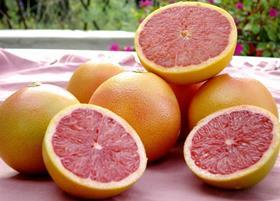
OTC Holland has announced that it has launched the South African organic citrus season with Star Ruby grapefruits from the Orange River region of the country.
A weekly supply of organic South African citrus will now arrive at Van den Bos Freshpartners in Poeldijk, located in the Netherlands, a warehousing partner of OTC.
Citrus Black Spot (CBS) import restrictions in Europe have meant a turbulent start to this year's campaign, and increased controls from last season have been a major influence on the operational processes of South Africa's inspection authorities.
“Our growers in the Eastern Cape needed to make a major effort to get the farms approved for export to Europe”, said Edward Out, who is responsible for purchasing in South Africa. “Fortunately, almost all registered EU farms passed the first round of inspections. We expect the first organic lemons from the Sundays River region to arrive around the beginning of June.”
This means, however, that a significant proportion of organic production is not allowed to be exported to Europe, because these orchards might be infected with CBS.
In addition to the CBS restrictions that have affected the supply from the Eastern Cape, OTC also expects less supply due to frost damage at the fruiting end of 2013.
“However we have good hope that we can offer a continuous supply of organic grapefruit, lemons and oranges because of the various growing regions”, Out confirms. “The limited supply will inevitably lead to an increased price. Therefore we can assist our suppliers in mitigating the loss of income caused by CBS and frost.”
The demand for organic citrus in the summer is high this year.
“Because of the expanding acreage of our suppliers, we expect to be able to meet the needs of the market better in the coming years,' added Out. 'But first we need to get through the upcoming season. There is still a risk that the EU restricts the import of South African citrus from areas where CBS occurs. For that reason we follow the developments in Brussels closely, like many fellow importers.”



